Scotland the Brave: More Lancers
Lancer: to be pronounced like Renton pronounces "dancer" as he emerges from the 'worst toilet in Scotland' in Trainspotting (but without the potty-mouth-sweariness).
Two more regiments of horse for the Solemn League and Covenant army.
The Earl of Leven's Regiment of Horse were raised in Fife in 1640 and occupied Newcastle for a year before returning to Scotland and being disbanded. raised anew in 1642 they went to fight in Ireland, returning to England in 1644. Famously fighting at York, Marston Moor (where their lancer troop proved very effective), Hereford, Philiphaugh (nope, I've never heard of this battle either), and Newark before being disbanded (apart from Leven's troop which joined the Scot's New Model Army) in 1647.
In 1648 Leven opposed the Engagers and Hamilton took over Leven's troop, which was reinforced and expanded. The (now Royalist) regiment escorted the baggage train during the Preston campaign, before getting stuck into the action at Preston, Winwick Bridge surrendering at Uttoxeter (and Hamilton was killed).
Leven was commissioned to raise a new regiment in 1649 (now fighting for Parliament again - do keep up at the back!) which fought at Dunbar and Sir Edward Massey took over command. In 1651 Leven's troop mutinied and switched allegiance (again) fighting for the Royalists at Worcester. Confused? I know am.
My incarnation of Leven's lancers carry a cornet from their Hamilton years.
Captain Arthur Forbes of Echt’s Troop of Horse have, thankfully, a much simpler history than Leven's. Raised in Aberdeenshire in 1640 they took part in the Siege of Strathbogie before being put on the naughty step for 'excessive plundering'. The troop resurfaced in 1644 taking part in the Battle of Aberdeen before disappearing from the history books again. Reactivated in 1648 where they were quartered at Lesmoir.
Two more regiments of horse for the Solemn League and Covenant army.
The Earl of Leven's Regiment of Horse were raised in Fife in 1640 and occupied Newcastle for a year before returning to Scotland and being disbanded. raised anew in 1642 they went to fight in Ireland, returning to England in 1644. Famously fighting at York, Marston Moor (where their lancer troop proved very effective), Hereford, Philiphaugh (nope, I've never heard of this battle either), and Newark before being disbanded (apart from Leven's troop which joined the Scot's New Model Army) in 1647.
In 1648 Leven opposed the Engagers and Hamilton took over Leven's troop, which was reinforced and expanded. The (now Royalist) regiment escorted the baggage train during the Preston campaign, before getting stuck into the action at Preston, Winwick Bridge surrendering at Uttoxeter (and Hamilton was killed).
My incarnation of Leven's lancers carry a cornet from their Hamilton years.
Captain Arthur Forbes of Echt’s Troop of Horse have, thankfully, a much simpler history than Leven's. Raised in Aberdeenshire in 1640 they took part in the Siege of Strathbogie before being put on the naughty step for 'excessive plundering'. The troop resurfaced in 1644 taking part in the Battle of Aberdeen before disappearing from the history books again. Reactivated in 1648 where they were quartered at Lesmoir.
If you enjoyed reading this, or any of the other posts, please consider supporting the blog.
Thanks.
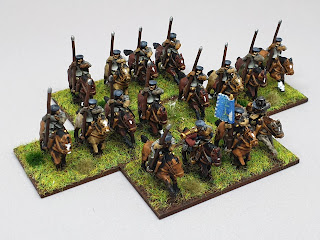





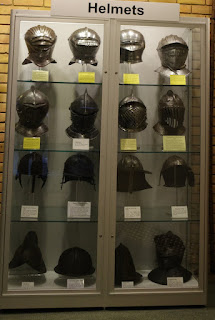
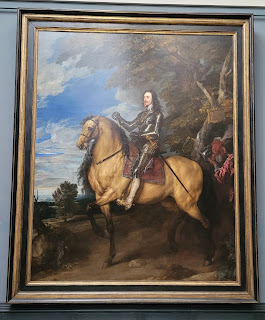

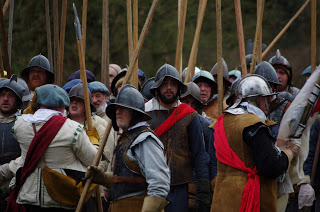
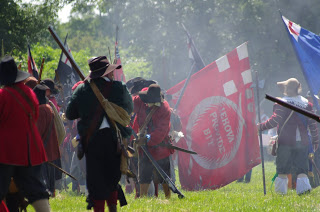


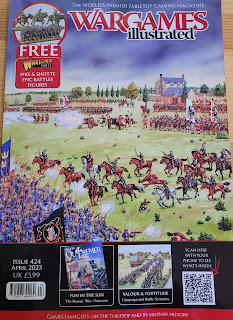
Very nice job, splendid cavalry!
ReplyDeleteGreat cavalry again. Excessive plundering? I thought that was the purpose of cavalry - although I suppose these are Covenanters ;-)
ReplyDeleteThanks for the kind comments. If they were in trouble for 'excessive plundering' then they have have been pretty bad, as you rightly point out it was an essential skill listed in the job description
ReplyDelete